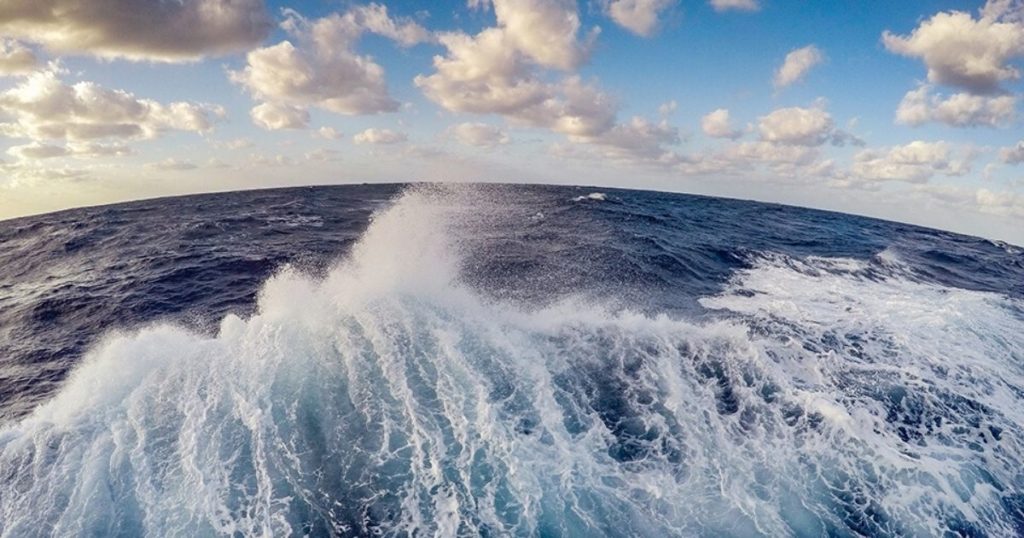As the impacts of Climate change and Global warming are visible everywhere on the face of Earth. The unseen and hidden faces of its impacts are getting uncovered one by one.
At times, we get to learn from its experiences after losing lives or money while sometimes the loss of livelihood is bare minimum. However surely, each time, we get to unravel the grandeur of Earth’s mysteries in awe.
Every attempt Mother Nature makes to fix things up her way, is so intriguing and unconventional for us Humans.
Changes are continuous since the birth of this planet. In brief history of Earth, it was covered entirely by water except a collated ancient landmass called Pangaea.
Due to persistent movement of the Earth’s plates, it further broke into Laurasia (Eurasia and North America) and Gondwana (Africa, South America, Antarctica, India and Australia). The land and sea are still moving and Geologists expect further disintegration of current landmasses in upcoming millions of years(If the Human race survives).
African rift valley system or Afro-Arabian Rift valley is one such example, where the cracks are visible to imagine a landmass split away the eastern periphery, extending from Jordan in southwestern Asia southward through eastern Africa to Mozambique.
This life-sustaining planet is silently working on its appearance. Oceans covering the major portions of it and being the largest Sink for Carbon, is being disproportionately impacted by swift Climate change and other impacts emanating from human activities.
Impacts on Global waters:
Increasing surface temperature, ocean acidification and deoxygenation, leading to changes in oceanic circulation and chemistry, rising sea levels, increased frequency and intensity of disasters, as well as changes in the diversity and quantity of marine species.
This in turn weakens the ability of the ocean and coasts to provide critical ecosystem services such as food, carbon sequestration, oxygen availability and enhance adaptation measures.
This further makes it difficult for nature to devise solutions related to climate change for itself.
Threatening Revelations:
A recent research published in the journal Nature scrounged the last 50 years data available and understood the manner in which surface water “decouples” from the deeper ocean.
Climate change indeed has a role to play. It brings on major changes to ocean stability faster than previously anticipated nearly six times of expected rate, according to the study.
It has raised enough alarms over its role as a destabilizer to the global thermostat and suffocating the marine life oceans do support.
How Climate change affects the structure of World Oceans?
It inhibits ocean mixing from surface to the very depth that involves Temperature, pressure, salt and mineral movement. Through this sort of natural mixing, the world’s excess heat and a huge quantity of CO2 is buried to the very heart of Oceans.
Oceans are known to absorb and even store more sunlight than lands. Sun’s rays can penetrate inside the oceans for many meters, that’s beneficial to its beings. Additionally, the oceans retain this heat for longer periods.
Water on the surface gets comparatively warmer and consequently it’s density decreases then the water below it. The barrier layer that separates the ocean surface and the deep layers within, has strengthened world-wide.
It is evident through studies that global ocean stratification had increased by 5.3 percent from 1960 to 2018 causing troubling implications.
All this disrupts the normal water cycle that carries warm, salty surface water towards colder regions like Poles from Equator and sends low-salt deep water back southwards.
Influencing Factors:
Climate change:
This sheer difference is gifted further impetus by universal Climate change. This makes the mixing across oceans harder, causing the available oxygen, heat and carbon all less diffusing in the deep oceans.
A 2019 research published in the US Proceedings of the National Academy of Sciences has calculated that due to climate change, nearly a fifth of all living creatures will be wiped off of the oceans, by the end of this century.
Salinity and freshwater:
Global warming is already causing loads of fresh water to plunge into the seas from melting ice sheets and glaciers. More Fresh water means lesser salt as compared to Sea water and this further lowers the salinity and subsequently the density of the upper layer of water.
Wind movements:
Winds strengthened by climate change at few places, have also significantly led to deepening the ocean surface layer by five to 10 meters per decade over the last half century.
A small change can trigger even bigger and disastrous results elsewhere in the carefully-designed system. Eventually, as the winds increase, phytoplanktons reach unintended deeper areas devoid of sunlight that can limit their ability to synthesize food for themselves and other beings residing therein, potentially disrupting the entire food web sustaining life within oceans.
According to lead author of the study, “such minute changes represent a fundamental change in the underlying structure of our oceans. Way more pronounced than what we thought until now”.
How Oceans assist in Climate change mitigation?
Many wet ecosystems like mangroves, marshes, swamps, salt marshes and seagrasses play a great role in carbon storage and sequestration, far more efficiently than the terrestrial forests. Any change to these and massive amounts of CO2, an estimated 0.15-1.02 billion tons every year, are released into the atmosphere or ocean.
This accounts for upto 19% of global carbon emissions from overall deforestation. Other linked services such as flood and storm protection, symbiotic association and shelter to various marine souls that they provide are also lost forever.
When the Climate change conspires against Oceans which gleamingly absorbs around a quarter of man-made CO2 and more than 90 percent of the heat generated by greenhouse gases, according to the Intergovernmental Panel for Climate Change (IPCC), we tend to lose the fight even before we start it.

